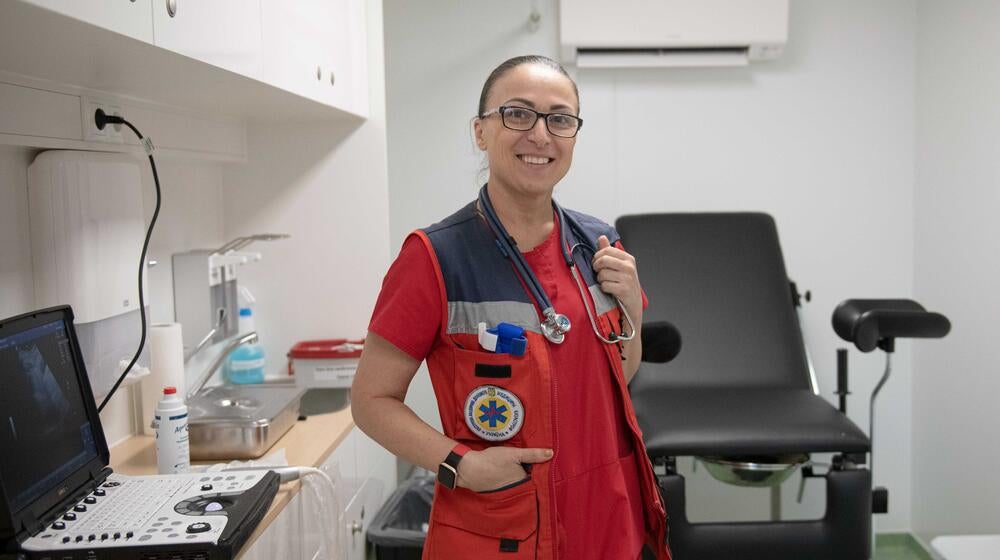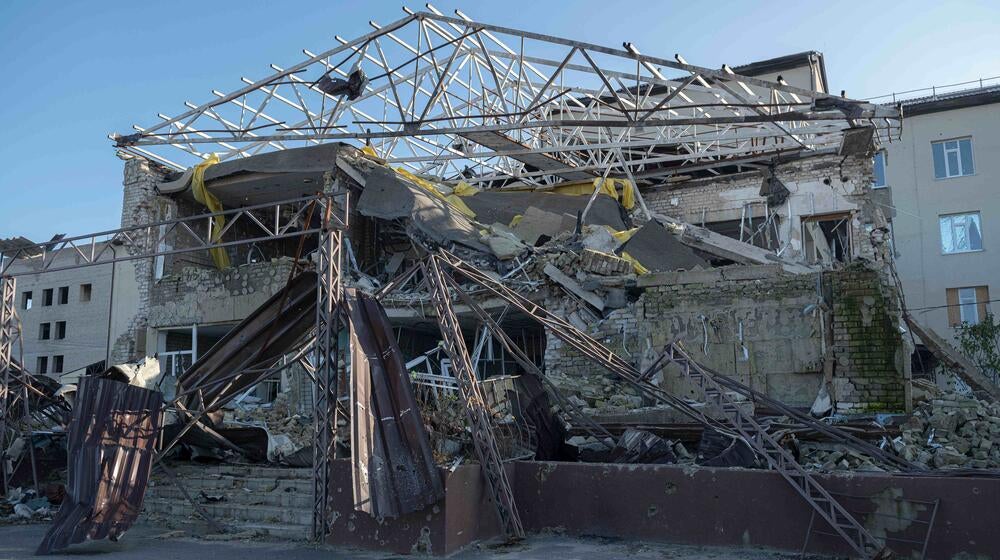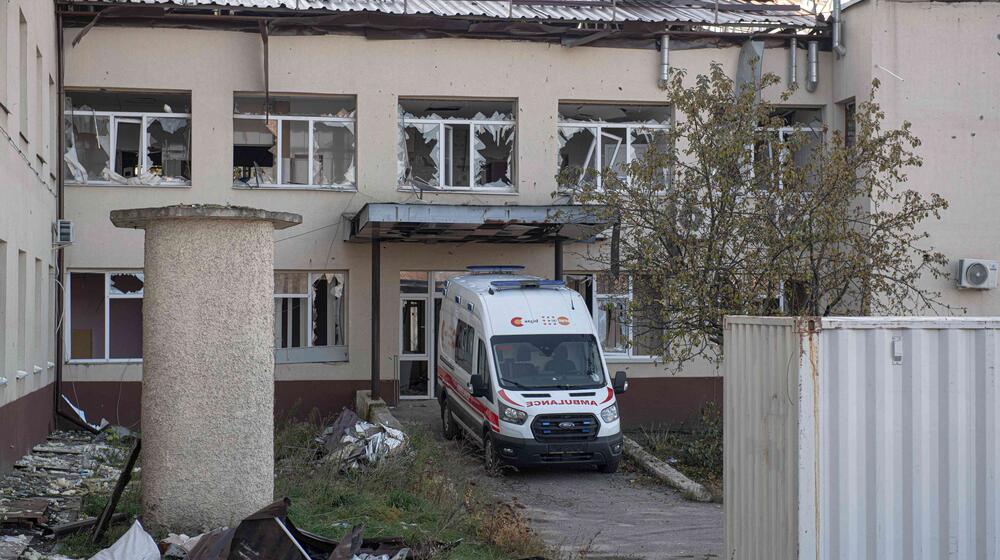A mobile maternity clinic delivers babies and critical health services amid war in Ukraine

BALAKLIYA, Ukraine – “When the war arrived in this area, the women and children tried to escape – from danger, hunger and the lack of medical services,” said Dr. Olga Filipova, an obstetrician and gynaecologist in a mobile maternity clinic in Ukraine.
Dr. Filipova provides medical help for women in remote areas of the war-torn Kharkiv region. The team reaches them through a UNFPA mobile maternity clinic currently stationed in the city of Balakliya. Ukrianian forces recently retook the city. Although the shelling hasn’t stopped, people are beginning to trickle back. Many of the people returning are women and girls in dire need of health care.
“As the war rages on, this mobile clinic is going to be very useful,” explained Dr. Filipova. “Because even now that the government has regained control of the area and people are starting to return home, local medical facilities are still very low.”
Destruction and loss of infrastructure
The war has destroyed most health facilities and essential infrastructure in the region, including a UNFPA clinic that served nearby communities. Across Ukraine, services now concentrated in a vastly reduced number of health centers. For many, the mobile clinic is the only way they can receive urgent, lifesaving sexual and reproductive health care.
With their own electricity and water, staff in mobile clinics can perform even complex procedures like caesarian sections. Staff work comfortably and have all necessary medicines and supplies to ensure pregnant women survive childbirth.
“We provide broad assistance, from general visits and basic analysis to consultations on family planning, contraception and referrals to specialists. We refer pregnant women and the most severe cases to hospitals,” Dr. Filipova added.

Sharp increase in health risks and complications
The World Health Organization estimates that some 688 medical facilities have been attacked since the war in Ukraine began. Ongoing power, water, and heating disruptions and treacherous roads have made it difficult to access the health services that are available, meaning millions of lives are at risk.
There are 80,000 women in the retaken territories, of whom more than 100 are pregnant in the Kharkiv region. 70 women will give birth within the next three months.
“Many women – including pregnant women – haven’t received adequate medical assistance for months, nor did older people with chronic diseases. As a result we are seeing some severe complications among pregnant women and an exacerbation of clinical conditions,”said Dr. Filipova. The most common among these are cervical cancer, diabetes and sexually transmitted infections, including HIV.
UNFPA has continued to open new health clinics and operate mental health mobile teams and helplines for survivors of violence. Since March 2022, more than 10,000 women and girls have received sexual and reproductive health services from UNFPA mobile clinics in Ukraine. Some 33,000 people had access to mental health services via helplines or mobile clinics.

Dangerous gaps in supplies and services
UNFPA will operate more than 30 mobile clinics across Ukraine in the coming weeks. This care will reach thousands of women and girls with the support they need, including safe delivery and postpartum care. The mobile team is also operating an ambulance at the now destroyed hospital in Izyum.
But logistics and supply chains are still facing lengthy disruptions. And with insecurity obstructing essential medical services, women and girls in Ukraine must overcome unprecedented challenges.
Hundreds of thousands of isolated villages and towns have lost power and communications infrastructure, meaning those living there are struggling to seek help as they most desperately need it.